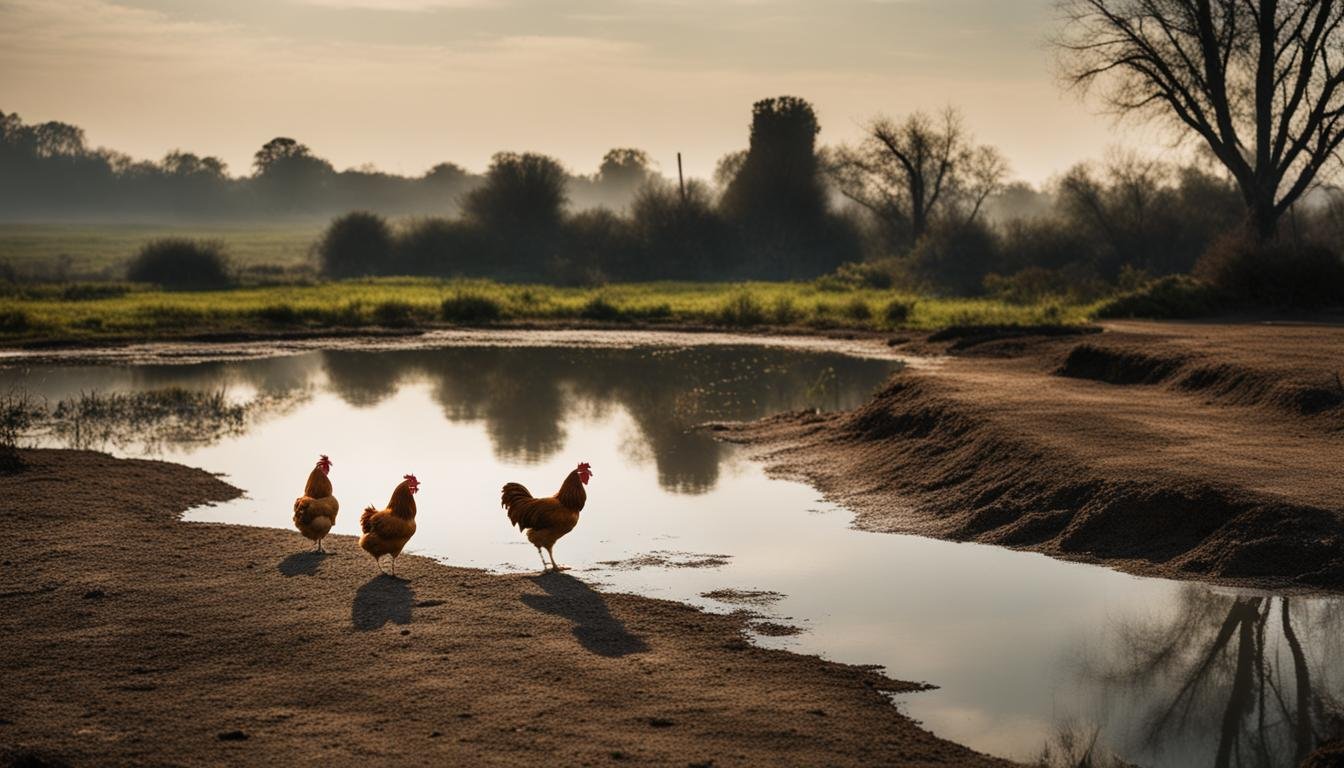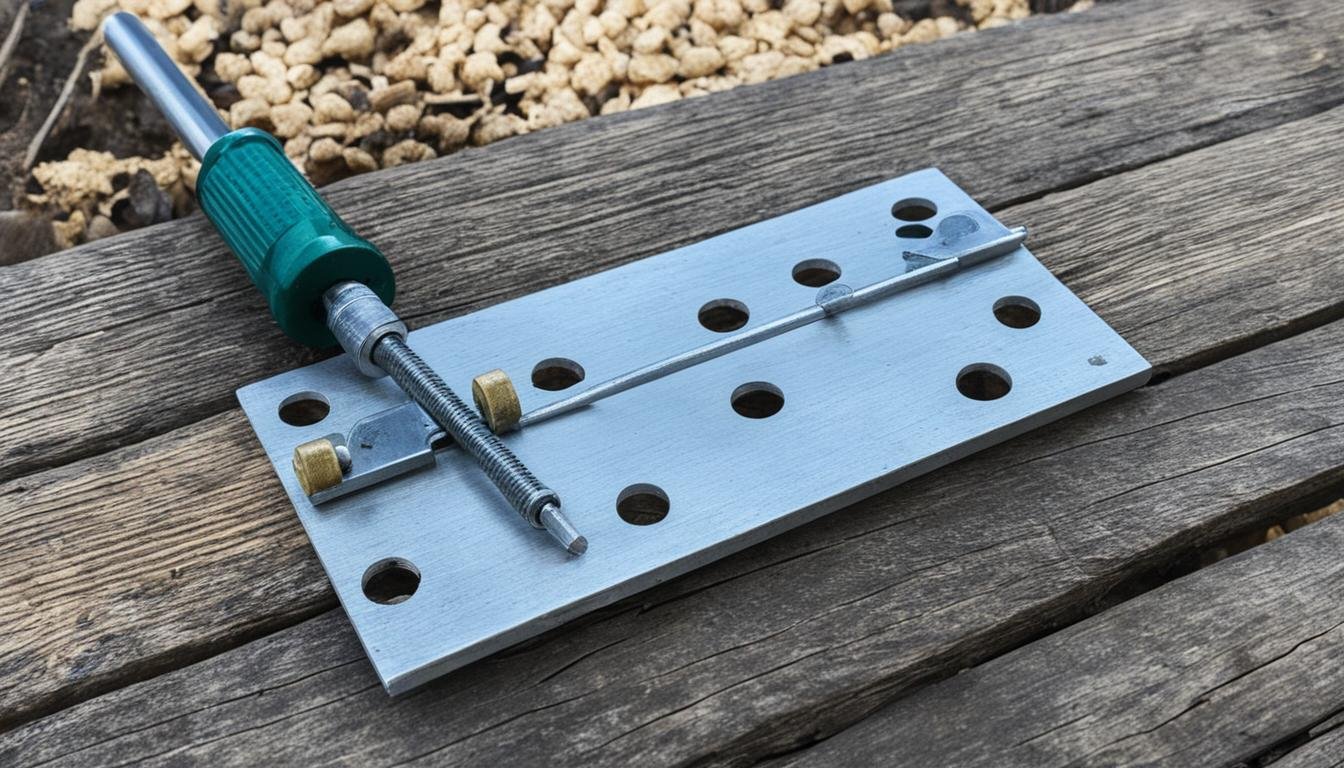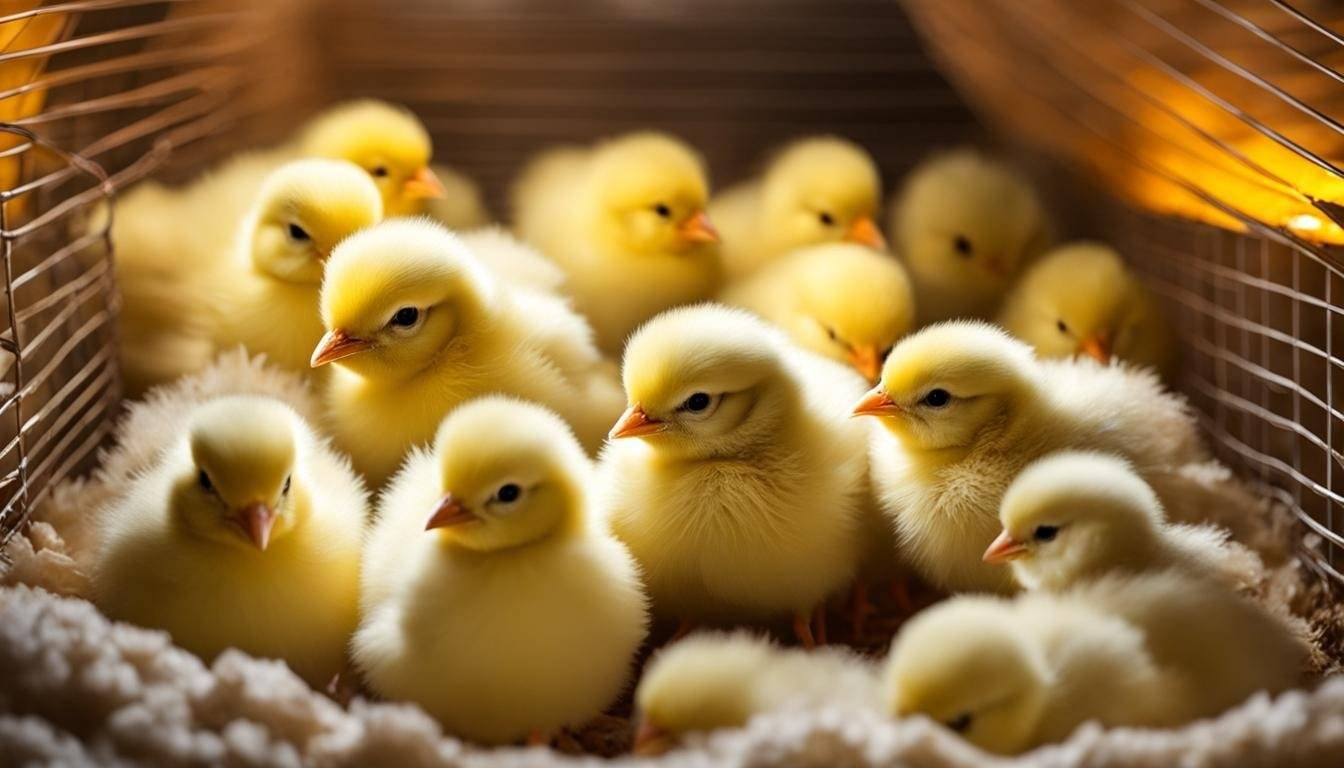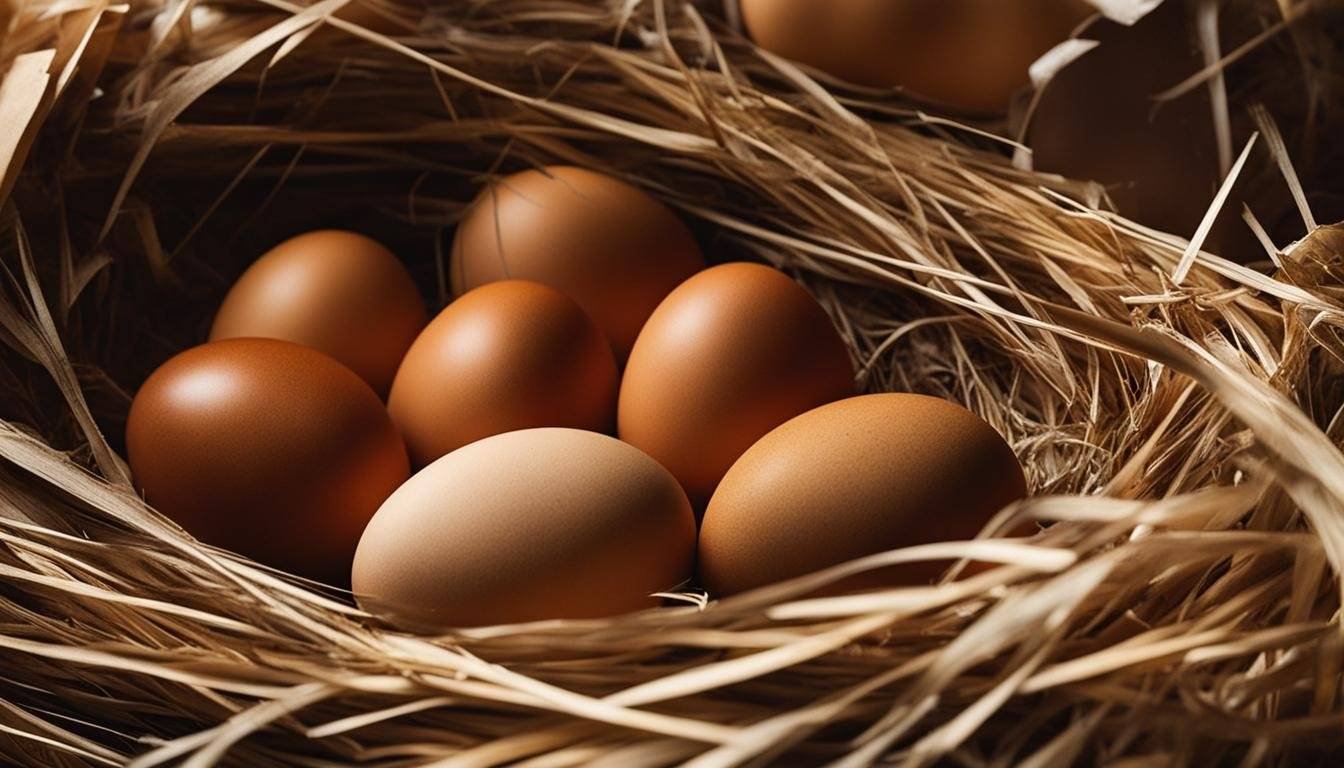Water belly, also known as ascites, is a disease that affects chickens and other poultry breeds. It is a condition characterized by the accumulation of fluid in the abdominal cavity, resulting in a swollen and squishy abdomen. Chickens with water belly may experience symptoms such as fatigue, reduced growth, respiratory distress, and blue wattles and combs.
Unfortunately, water belly has a high mortality rate, often due to heart failure. Many chicken enthusiasts often wonder, “how long can a chicken live with water belly?” Well, the answer is not straightforward as it depends on several factors, including the overall health of the bird, the severity of the condition, and the availability of treatment options.
There are several causes of water belly, including pulmonary hypertension, rapid growth, elevation, respiratory diseases, and poor nutrition or genetics. Preventing water belly in chickens involves providing a well-ventilated environment, clean food and water, and managing the rate of growth through diet adjustments.
When it comes to treatment, unfortunately, there is no permanent solution available. However, there are options to provide some relief. In this article, we will explore the symptoms, causes, prevention strategies, and treatment options for water belly in chickens.
So, let’s delve into the fascinating world of water belly in chickens and learn how we can help these feathered creatures improve their quality of life!
Symptoms and Causes of Water Belly in Chickens
Water belly in chickens, also known as ascites, is a condition characterized by a swollen and squishy abdomen. Chickens affected by water belly may exhibit various symptoms, including:
- Fatigue
- Reduced growth
- Respiratory distress
- Blue wattles and combs
The main cause of water belly in chickens is pulmonary hypertension, a condition that puts strain on the heart and lungs, impairing the delivery of oxygen to the body’s organs. This leads to fluid accumulation in the abdominal cavity. Rapid growth, especially in meat birds like Cornish crosses, can also contribute to the development of water belly.
Other factors that can increase the risk of water belly in chickens include:
- Elevation: Chickens raised in high-altitude areas may be more susceptible to developing water belly.
- Respiratory diseases: Infections and long-standing respiratory issues can strain the cardiovascular system and contribute to fluid buildup.
- Poor nutrition: Imbalanced diets or inadequate access to clean water and quality feed can weaken chickens’ overall health and make them more prone to water belly.
- Genetics: Certain genetic predispositions can make chickens more susceptible to developing water belly.
Understanding the symptoms and causes of water belly in chickens is crucial for identifying and addressing this condition early on. By implementing preventive measures and providing proper care, it is possible to reduce the risk of water belly and promote the overall well-being of poultry.
Preventing Water Belly in Chickens
Preventing water belly in chickens is vital to maintaining their health and well-being. By taking certain measures, you can create a healthy environment and provide proper nutrition to reduce the risk of water retention in chickens.
One essential factor in preventing water belly is ensuring good ventilation in the coop or barn. Clean, fresh air circulation helps reduce the chances of respiratory diseases that can contribute to water belly. It is crucial to regularly check the coop for proper airflow and make any necessary adjustments to enhance ventilation.
Using clean bedding with low dust is another crucial step in preventing water belly. Avoid toxic materials like cedar bedding, as they can affect respiratory health. Ensure the bedding is clean and free from mold, mildew, or other contaminants that could potentially harm the chickens.
Providing clean food and water at all times is of utmost importance. Stagnant water and old or wet feed can lead to bacterial growth and respiratory issues, increasing the risk of water belly. Regularly check the water containers for cleanliness and change the water if necessary. Similarly, remove any leftover or spoiled feed promptly to maintain the chickens’ health.
Proper nutrition is a key aspect of preventing water belly in chickens. A balanced diet is essential, providing the necessary nutrients without causing rapid growth. For meat chickens, managing the rate of growth is crucial in preventing water belly. This can be achieved by adjusting the energy content of the feed or reducing the amount of feed given.
In summary, preventing water belly in backyard chickens involves creating a well-ventilated environment, using clean bedding, providing clean food and water, and managing the rate of growth. By implementing these preventive measures, you can significantly reduce the risk of water retention in chickens and promote their overall health.

| Preventive Measures | Benefits |
|---|---|
| Ensure good ventilation in the coop or barn | Reduces the risk of respiratory diseases |
| Use clean bedding with low dust | Maintains respiratory health |
| Provide clean food and water at all times | Prevents bacterial growth and respiratory issues |
| Ensure a balanced diet and manage the rate of growth | Reduces the risk of water belly, especially in meat chickens |
Treating Water Belly in Chickens
Treating water belly in chickens can be challenging, as there is no permanent solution or approved medication for the condition. However, draining the accumulated fluid from the swollen abdomen can provide temporary relief and make the bird more comfortable. This procedure should be performed by a veterinarian and may need to be repeated as the fluid continues to build up.
In addition to conventional treatments, there are some natural remedies being researched that show promise in treating water belly in chickens. Oregano essential oil and vitamin C supplementation have been studied and have shown potential in reducing the mortality rates and cases of water belly in chickens. However, further research is needed to establish the effectiveness of these treatments.
Natural Remedies for Chicken Water Belly
While there’s no guaranteed cure for water belly in chickens, natural remedies like oregano essential oil and vitamin C supplementation have shown promising results in reducing symptoms and improving the birds’ overall health. Oregano essential oil is known for its antimicrobial and anti-inflammatory properties, which can help combat any underlying infections and promote healing in the chicken’s abdominal cavity. Vitamin C is a powerful antioxidant that supports the immune system and can potentially reduce inflammation and fluid buildup.
It’s important to note that natural remedies should only be used under the guidance of a veterinarian. They should not replace conventional treatments, but rather serve as complementary measures to support the bird’s recovery. Dosages and administration methods may vary, so always consult with a professional who is familiar with avian health.
Veterinary Drainage Procedure for Chicken Water Belly
In severe cases of water belly, a veterinary drainage procedure may be necessary to alleviate discomfort and prevent further complications. This procedure involves withdrawing the accumulated fluid from the swollen abdomen using a sterile needle and syringe, providing temporary relief to the chicken. It’s important to have this procedure performed by a trained veterinarian to ensure the safety and well-being of the bird.
After the fluid is drained, the chicken may experience a temporary improvement in their symptoms. However, it’s important to note that fluid accumulation may continue over time, requiring repeated drainage procedures. The underlying causes of water belly, such as pulmonary hypertension and heart disease, may also need to be addressed to manage the condition effectively.
| Treatment Method | Description |
|---|---|
| Fluid Drainage | A veterinary procedure that involves removing accumulated fluid from the swollen abdomen using a sterile needle and syringe. Provides temporary relief and improves comfort. |
| Oregano Essential Oil | A natural remedy with antimicrobial and anti-inflammatory properties that may help reduce symptoms and promote healing in the abdominal cavity. |
| Vitamin C Supplementation | A dietary addition that supports the immune system, reduces inflammation, and potentially reduces fluid buildup in chickens with water belly. |
It’s crucial to consult with a knowledgeable veterinarian for the best course of treatment for water belly in chickens. They can assess the severity of the condition, determine the underlying causes, and recommend appropriate interventions to improve the bird’s quality of life.

Conclusion
Water belly, also known as ascites, is a serious condition that significantly impacts the lifespan of chickens. Unfortunately, chickens with water belly have a high mortality rate, often due to heart failure. This disease is characterized by the accumulation of fluid in the abdominal cavity, resulting in a swollen and squishy abdomen that gives the appearance of a “water belly”.
To prevent water belly in chickens and improve their overall health, it is crucial to create a healthy environment and provide them with proper nutrition. This includes ensuring good ventilation in their coop or barn to reduce the risk of respiratory diseases, as well as offering clean food and water at all times. It is also important to manage the growth rate in meat chickens, as rapid growth can contribute to the development of water belly.
Unfortunately, treatment options for water belly in chickens are limited. Draining the accumulated fluid from the abdomen can provide temporary relief and make the bird more comfortable, but it is not a permanent solution. Exploring natural remedies such as oregano essential oil and vitamin C supplementation may show promise in reducing mortality rates and cases of water belly, but further research is needed to establish their effectiveness.
In conclusion, water belly is a serious disease that can significantly impact the lifespan of chickens. Prevention through proper care and management is the key to reducing the incidence of water belly. Ongoing research is crucial to develop more effective treatments and improve the longevity of chickens affected by this condition.





